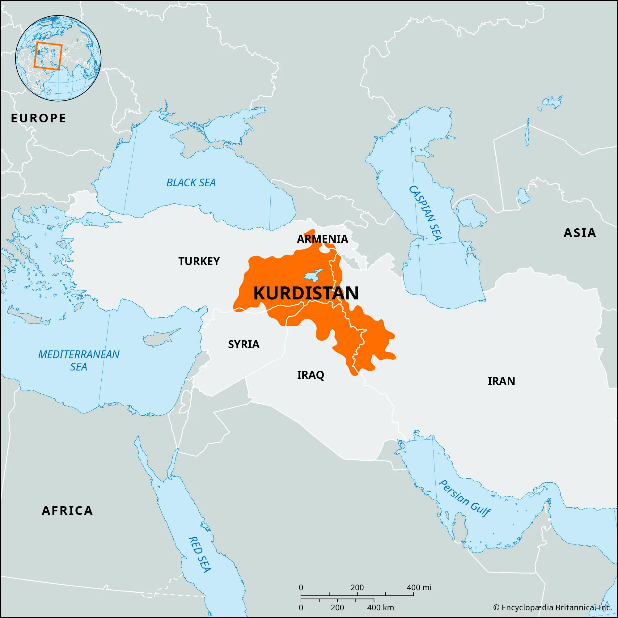GS3 INTERNATIONAL RELATIONS

India recently extended humanitarian assistance to the residents of the Kurdistan region in Iraq. This initiative reflects India’s commitment to supporting global peace and stability through aid to regions in crisis.
About the Kurdistan Region
- Geographical Scope: Kurdistan is a mountainous region that spans parts of eastern Turkey, northern Iraq, western Iran, and smaller portions of northern Syria and Armenia.
- Ethnic Composition: The region is predominantly inhabited by the Kurds, an ethnic group that is the fourth-largest in the Middle East.
- Political History: After World War I, the Treaty of Sèvres (1920) promised the Kurds a homeland, but this aspiration was crushed by the Treaty of Lausanne (1924), which divided the Kurds among the newly formed nations of the Middle East. As a result, the Kurds have remained without a nation-state of their own.
India’s humanitarian support is part of a broader effort to alleviate suffering in conflict-affected regions and foster goodwill in international relations.




